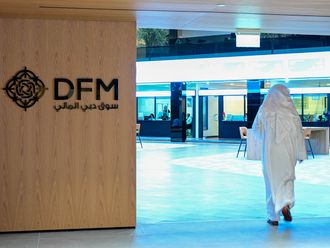The Bahrain economy is undergoing changes designed to strengthen the state’s treasury income through many revenue enhancement measures. The authorities are adopting action in line with developments elsewhere in the Gulf, and notably mirroring what is happening in Saudi Arabia. These encompass reducing subsidies, raising prices for governmental services and where possible imposing taxes.
Understandably, officials have little choice but streamline public finance. The numbers for fiscal year 2018 put expenditure at $9.2 billion and revenues at $6.2 billion. This leaves a projected deficit of $3 billion, which would be about 9 per cent of the gross domestic product. The gap is however an improvement over 2016’s deficit, when it stood at $4 billion or 12.5 of GDP.
The latest steps intended to generate additional budgetary revenues include raising petrol prices. Starting January 9, the National Oil and Gas Authority increased prices for octane 95 by 25 per cent to $0.53 per litre. This marks the second such rise in fuel prices within two years, and the government is not ruling out further increases.
The oil company felt the urge to mirror fuel prices in Saudi Arabia, which is linked by the King Fahd causeway and plays a pivotal role in Bahrain’s economy. A number of Saudi nationals visit Bahrain during the weekend and on holidays to take advantage of the country’s liberal environment. A price differential with Saudi Arabia causes distortion of market forces, and Saudi visitors seek to take advantage.
Bahrain authorities have implemented excise tax on select goods, especially tobacco products, to match prices in Saudi Arabia. At times, there have been reports of shortages in certain cigarette brands in Bahrain as a consequence of buying by Saudi visitors. Some motorists found value in buying cigarettes for consumption or sale in Saudi Arabia.
Plans are reportedly underway to introduce value-added tax sometime this year and join Saudi Arabia and the UAE to have done so.
At a broader level, the government wants to reset the subsidy programme as a whole. Numbers estimate the cost of such schemes at a notable $1 billion. This is a sizeable amount given a budgetary spend of around $9 billion in 2018.
The subsidy involve financial assistance for some 15,000 families. Other allowances cover compensation for ending subsidies on meat. Special allowances are also extended for nationals waiting receiving houses provided by the government. A new push calls for restricting subsidies for the needy.
Reducing state financial burdens is essential not least given the nature of credit ratings extended to Bahrain. In late 2017, S&P lowered the long-term foreign and local currency sovereignty credit ratings from BB- to B+. The move was linked to liquidity pressures and limited access to capital market.
Moody’s downgraded the government’s long-term issuer rating from Ba2 to B1 while maintaining the negative outlook. And Fitch revised its outlook for the economy from stable to negative.
Officials will eventually to restructure public finances once and for all ... and for good reasons too.
The writer is a Member of Parliament in Bahrain.












